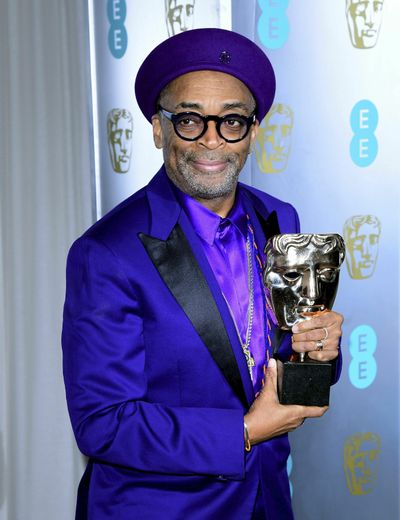Film academy ditches controversial Oscars changes; all awards to be shown on telecast

LOS ANGELES – Bowing to fierce blowback – and throwing yet another wrench into an already tumultuous Oscar season – the motion picture academy has announced that it is shelving a controversial plan to move the presentation of four key awards to commercial breaks during this year’s telecast.
The decision follows several days of controversy that pitted the academy’s leadership against some of the organization’s most distinguished members, as hundreds of Hollywood luminaries rallied against a proposal that, while intended to help limit the notoriously lengthy telecast to three hours, was widely regarded as representing a slight against some of filmmaking’s most vital crafts.
In an official statement, Academy of Motion Picture Arts and Sciences leadership said: “The Academy has heard the feedback from its membership regarding the Oscar presentation of four awards – cinematography, film editing, live action short, and makeup and hairstyling. All Academy Awards will be presented without edits, in our traditional format. We look forward to Oscar Sunday, February 24.”
First announced by the AMPAS board of governors in August, with further details unveiled Monday, the plan would have shifted the presentation of the awards for cinematography, editing, hairstyling and makeup and live-action short to commercial breaks, with winners’ speeches edited into a later portion of the broadcast. In future years, four to six other categories would be rotated out of the live telecast in a similar fashion.
“Viewing patterns for the Academy Awards are changing quickly in our current multimedia world, and our show must also evolve to successfully continue promoting motion pictures to a worldwide audience,” academy President John Bailey wrote in a letter to members explaining the move, even as he assured them that the group was “still honoring the achievements of all 24 awards on the Oscars.”
The academy’s leadership – which had selected the categories in conjunction with governors from the individual branches – expected some degree of resistance to the idea. But it was unprepared for the overwhelming tide of antipathy it received from boldfaced names from across the movie business, creating a severe public relations crisis for an organization considered itself the public face and ultimate champion of the film industry.
Hundreds of directors, actors and other film professionals, including past Oscar winners such as Martin Scorsese, Robert De Niro and Meryl Streep and current nominees such as Alfonso Cuaron, Emma Stone, Spike Lee and Glenn Close, signed an open letter calling the plan “nothing less than an insult to those of us who have devoted our lives and passions to our chosen profession.” The American Society of Cinematographers, American Cinema Editors and the Make-Up Artists and Hair Stylists Guild all publicly came out against the idea.
The reversal followed a meeting Thursday evening involving the academy’s chief executive, Dawn Hudson, and president Bailey and a handful of prominent members of the cinematography community: American Society of Cinematographers President Kees van Oostrum and cinematographers Hoyte van Hoytema (“Dunkirk”), Emmanuel Lubezki (“The Revenant”) and Rachel Morrison (“Black Panther”).
With the ratings for last year’s telecast hitting an all-time low, many within the academy’s leadership have long argued that trimming some awards out of the live broadcast, while painful, was necessary. But in a 91-year-old organization that proudly guards its tradition, reaching consensus on how to do that has proved next to impossible.
In 1992, for instance, the board of governors voted to remove the live-action short film and documentary short-film categories from the ceremony. High-profile academy members Steven Spielberg, Martin Scorsese and Robert Redford protested, and the move was reversed, never going into effect.
“The problem over the years is that the academy has – correctly, I believe – added more branches to recognize the input of the disciplines to the moviemaking process,” producer and former studio executive Bill Mechanic, who previously served on the academy’s board of governors, told the Los Angeles Times earlier this week. “The problem is that everyone wants recognition on the show itself, which has made it bloated for the general public.”
The flap is just the latest in a string of crises that have roiled this awards season, whipsawing academy members and longtime Oscar observers alike.
In September, the academy’s leadership scrapped a much-criticized plan to create a new “best popular film” category for this year’s Oscars just weeks after it had been announced. In December, Kevin Hart stepped down as the announced host of the show amid an uproar over past homophobic tweets and jokes, leaving the Oscars without a formal host for the first time in 30 years.